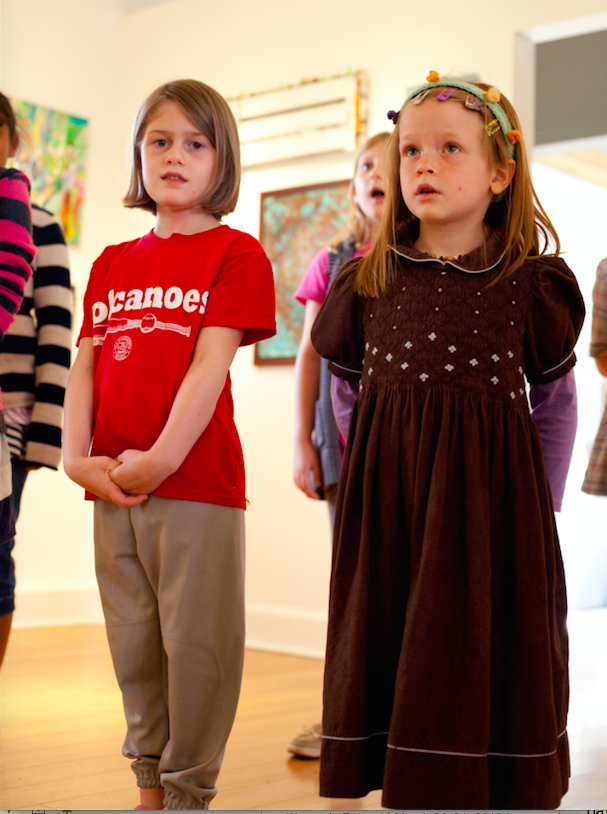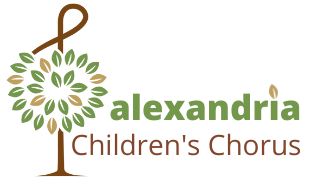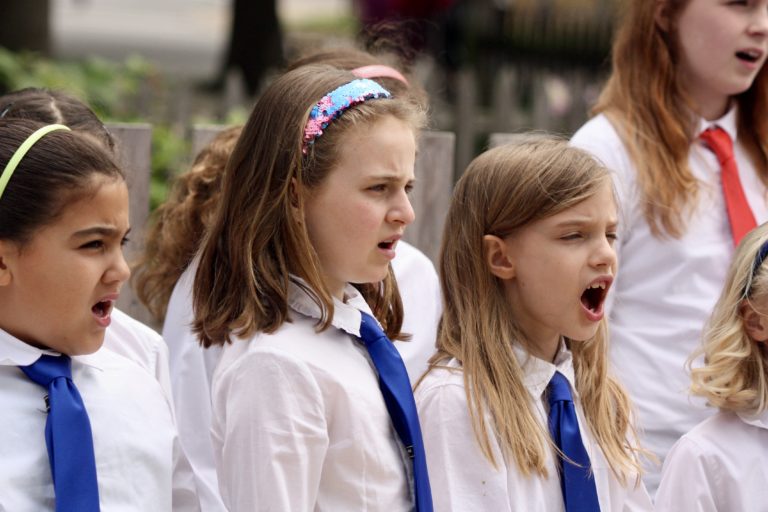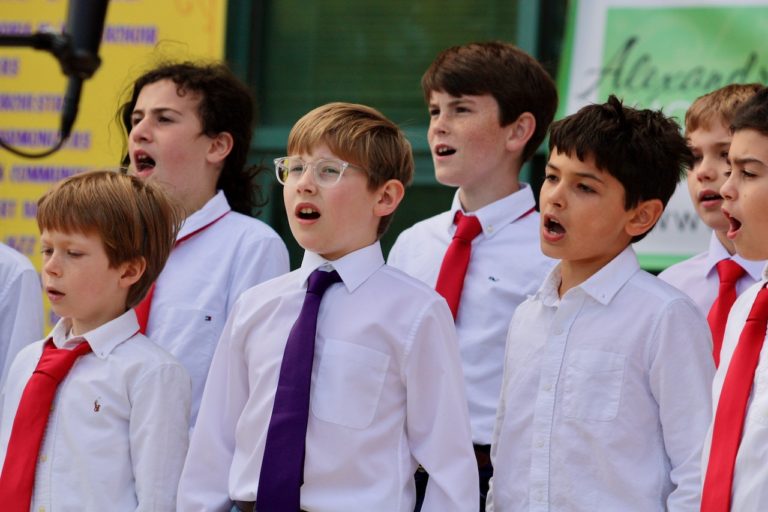
Kindergarten
5:15-6:00 PM
This chorus sets the foundation for children to build basic music literacy skills, achieve proper singing technique, and accurately sing simple rhythms and melodies with increasing attention to mastering repertoire for designated concerts. Skills emphasized are:
- introduction of the body as a musical instrument: proper singing posture, breath support, precise articulation of vowels and consonants, and tonal quality
- matching pitches and accurately singing intervals, scales, simple rhythm patterns, drones, chants, and melodies
- introduction to rhythmic and melodic notation, singing in solfege with hand signals
- call-and-response singing and singing in unison with other children and the instructor
- music appreciation and active listening skills
- musical expression through purposeful, playful, and dynamic movement activities
- performance skills and concert etiquette with participation in one concert per season
- cooperation and community


